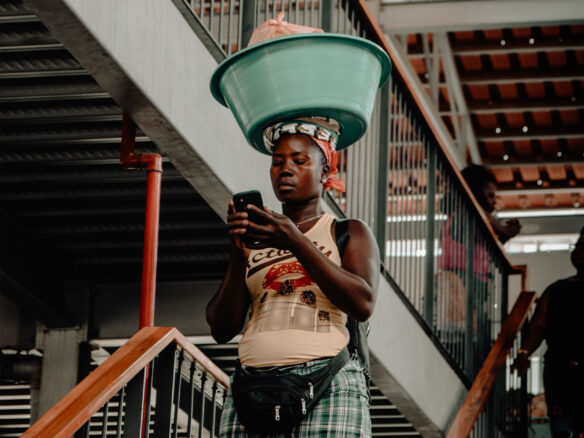
We are a big world on a small planet, using more resources than our planet can sustain. Science indicates that we are pushing the limits of the Earth and we are fast approaching a point of no return.
In the 2015 Paris Agreement the goal was set to limit global warming to well below 2, preferably to 1.5 degrees Celsius, compared to pre-industrial levels. However, climate is just one component of the complex system that our planet is based upon.
To slow down the negative development, we need to find the perfect balance of climate, water, biodiversity, ocean and land – the systems that together regulate the stability and resilience of Earth and that are vital to both our survival and our modern society.
New tools are needed that enables us to anticipate future tipping points and assess the limits of the entire Earth system to be able to take decisions based on science.
Therefore, we have partnered up with The Potsdam Institute for Climate Impact Research (PIK) to advance the scientific research needed to develop new science-based targets. PIK is a German government-funded research institute addressing crucial scientific questions in the fields of global change, climate impacts and sustainable development.
“The scientific message is clear; we are facing a planetary emergency. We’re following a path that will take us to above 3 degrees Celsius warming by the end of this century, a place we haven’t been in for the past 3 million years. The textile industry does not only impact the climate system, it also impacts biodiversity, land, water, nutrients and chemicals – all the planetary boundaries that determine the life support systems for us humans, but also the stability of the planet itself.”
Johan Rockström, Director at The Potsdam Institute for Climate Impact Research
Project details
In detail, we are funding the development of a powerful scientific research tool called The Potsdam Earth Model (POEM). Think a gigantic computer model that can process extremely complex data and turn it into comprehensible models. This model will plug into the forefront work done by PIK and be available to other scientists.
POEM will enable scientist to simulate how Earth’s life support systems interact with each other over time through feedback loops. The data model will make it possible to predict what impact our actions will have over time, and how that in turn will affect the development of the global economy and our modern society. This information will make it clear what consequences our lifestyle has on Earth’s systems, and what we must to do lessen the impact to protect humanity.
The scientists will be able to perform a range of experiments to investigate the interactions of ocean, atmosphere and land biosphere under different climate scenarios. For example:
- How different scenarios impact the performance of crops, including cotton.
- What impact a slowdown of the Gulf Stream system has on Europe and the rest of the world.
- How land use change – i.e. further deforestation of the Amazon – will affect rainfall patterns across the southern hemisphere.
Expected results from the partnership
Through this project we want to advance the knowledge about what actions we collectively need to take to avoid irreversible tipping points and stay within our planetary boundaries and the safe operating space for humanity.
We hope that these new targets will be applied within the fashion industry to drive real change towards a planet positive future.


